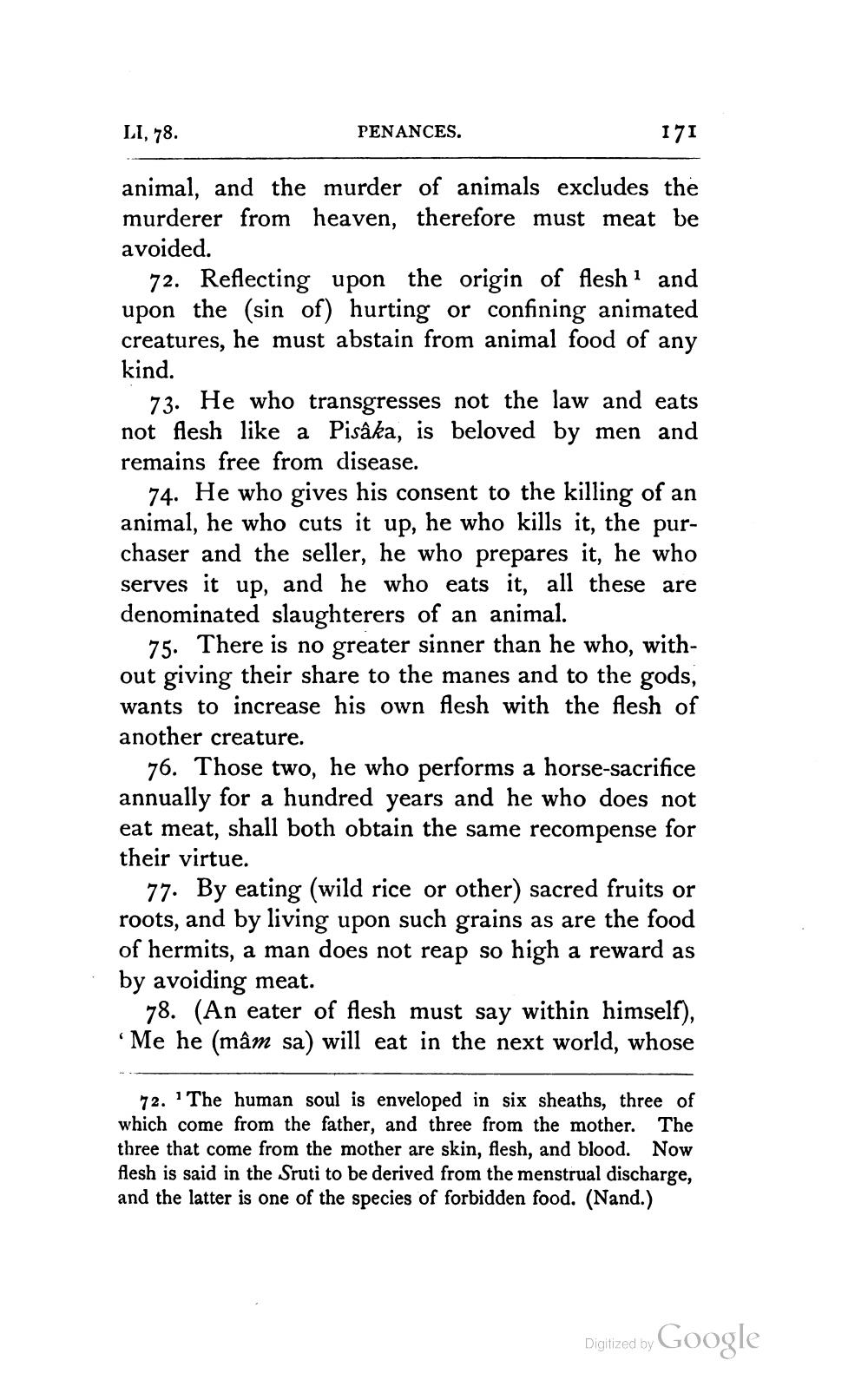________________
LI, 78.
PENANCES.
171
animal, and the murder of animals excludes the murderer from heaven, therefore must meat be avoided.
72. Reflecting upon the origin of flesh 1 and upon the (sin of) hurting or confining animated creatures, he must abstain from animal food of any kind.
73. He who transgresses not the law and eats not flesh like a Pisâka, is beloved by men and remains free from disease.
74. He who gives his consent to the killing of an animal, he who cuts it up, he who kills it, the purchaser and the seller, he who prepares it, he who serves it up, and he who eats it, all these are denominated slaughterers of an animal.
75. There is no greater sinner than he who, without giving their share to the manes and to the gods, wants to increase his own flesh with the flesh of another creature.
76. Those two, he who performs a horse-sacrifice annually for a hundred years and he who does not eat meat, shall both obtain the same recompense for their virtue.
77. By eating (wild rice or other) sacred fruits or roots, and by living upon such grains as are the food of hermits, a man does not reap so high a reward as by avoiding meat.
78. (An eater of flesh must say within himself), Me he (mâm sa) will eat in the next world, whose
72. The human soul is enveloped in six sheaths, three of which come from the father, and three from the mother. The three that come from the mother are skin, flesh, and blood. Now flesh is said in the Sruti to be derived from the menstrual discharge, and the latter is one of the species of forbidden food. (Nand.)
Digitized by Google




